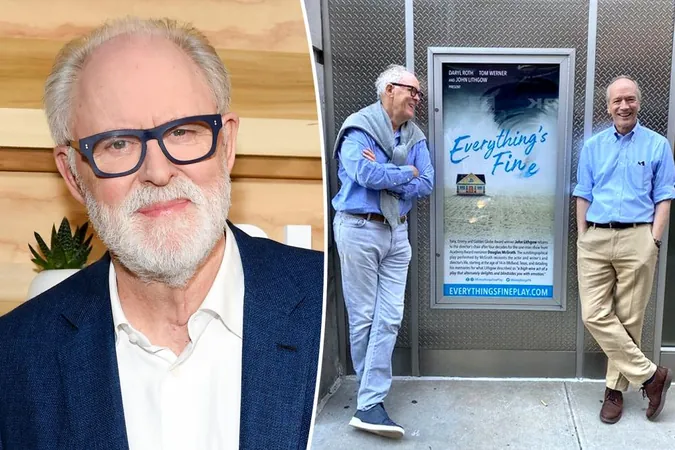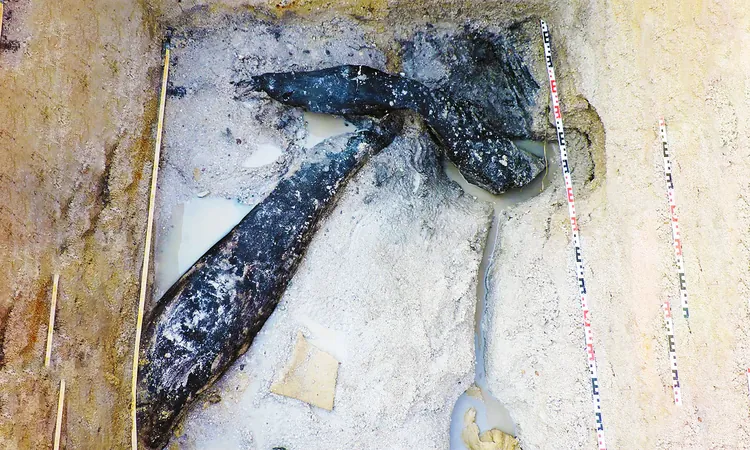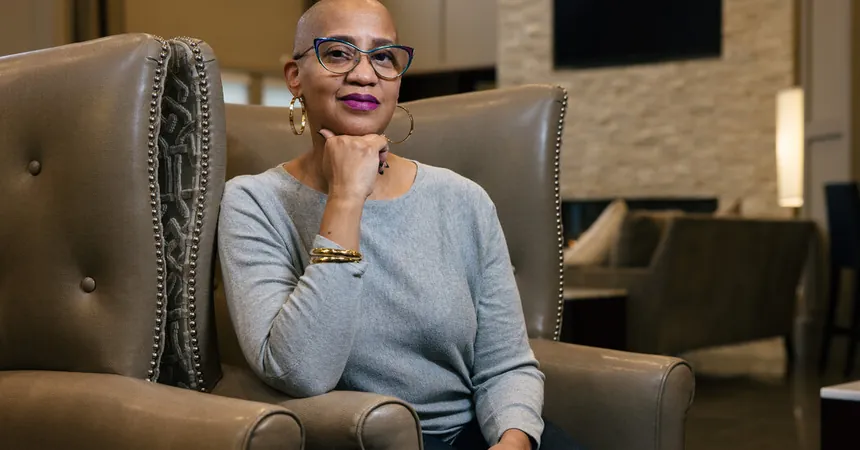
Can Prefabricated Housing Be the Answer to America's Housing Crisis?
2024-12-09
Author: Jia
Introduction to the Housing Crisis
The housing crisis in the United States has reached urgent proportions, with rapid population growth and soaring rental prices pushing affordable housing out of reach for many Americans. In a bold move to address this pressing issue, steel tycoon Barry Zekelman is investing a staggering $1 billion of his family’s fortune into the construction of factory-built apartment complexes.
Innovative Approaches in Prefabrication
In the sweltering heat of Chandler, Arizona, Zekelman is pioneering a new approach to home construction at his prefabrication factory. Hollow structural steel, sourced from his steel plants, is meticulously crafted into pre-made modules that are destined to form apartment complexes. Zekelman emphasizes the efficiency of this method: “It’s like putting together a puzzle. You don’t have to measure; it’s all pre-cut.” This streamlined process may outpace conventional construction, particularly in extreme weather conditions typical of the Southwest.
Historical Context and Challenges
Historically, the concept of prefabricated homes isn’t new. Sears Roebuck famously sold kit homes over a century ago, but while there have been victories, many ventures have floundered. One example is Katerra, a SoftBank-backed startup that collapsed after burning through $2 billion in investment funds. The hurdles facing factory construction are daunting: enormous capital investment, cyclical demand, and the local nature of real estate that complicates standardization. Greg Smithies, a partner at Fifth Wall, humorously notes that the promise of modular construction has been “10 to 15 years away for the last 75 years.”
Zekelman’s Vision for the Future
However, the potential for success is beckoning, evidenced by Zekelman’s extensive commitment to this venture. Currently 57, with an estimated net worth of $3.4 billion, Zekelman has been refining his business model for years. Transitioning from steel manufacturing to becoming a builder and developer, he believes that prefabrication can provide cost-effective housing faster than traditional methods while also circumventing dependence on a troubled construction labor force.
Z Modular: A New Horizon in Construction
Z Modular, a subsidiary of Zekelman Industries, has embraced this vision since its inception in 2016. The company has built three manufacturing facilities in Texas and Alabama, focusing on areas with high housing demand and less regulatory red tape. By the end of 2025, Z Modular expects to complete 15 apartment complexes with nearly 3,900 units. While the endeavor has faced losses, Zekelman anticipates an income surge to $50 million in the coming year through rental agreements.
Addressing Climate Change and Resilience
The urgency of the housing crisis is amplified by climate change, with extreme weather events increasing in frequency. Z Modular’s steel-based construction is not only more energy-efficient but also potentially more resilient against fires and severe storms than traditional wood structures. This durability might even translate into lower insurance costs for residents, making these complexes an attractive option for tenants.
Challenges and Strategic Shifts
Zekelman’s journey into modular housing stemmed from a chance encounter with inventor Julian Bowron, who created a robust corner connector for modular construction. However, early projects led to financial difficulties and contentious litigation, prompting Zekelman to shift strategy to own land and oversee the development of his apartments.
Future Aspirations and Global Reach
This innovative model does not come without its challenges. The need for substantial capital investment continues to be a barrier. Zekelman is exploring the possibility of public offerings or partnerships with real estate investment trusts (REITs) to expand his ambitions into building hundreds of thousands of units across the globe. His vision is expansive—considering international opportunities could allow for solutions to housing shortages in places like Spain, Argentina, Saudi Arabia, and beyond.
Conclusion: The Road Ahead
As the U.S. grapples with its ongoing housing crisis, Barry Zekelman’s factory-built apartment complexes present a potential way forward, but whether he can scale to meet demand remains an open question. Will this contrarian bet prove to be the key to unlocking affordable housing across America and the world? Only time will tell, but Zekelman's drive and commitment to innovation keep the possibility alive.




 Brasil (PT)
Brasil (PT)
 Canada (EN)
Canada (EN)
 Chile (ES)
Chile (ES)
 España (ES)
España (ES)
 France (FR)
France (FR)
 Hong Kong (EN)
Hong Kong (EN)
 Italia (IT)
Italia (IT)
 日本 (JA)
日本 (JA)
 Magyarország (HU)
Magyarország (HU)
 Norge (NO)
Norge (NO)
 Polska (PL)
Polska (PL)
 Schweiz (DE)
Schweiz (DE)
 Singapore (EN)
Singapore (EN)
 Sverige (SV)
Sverige (SV)
 Suomi (FI)
Suomi (FI)
 Türkiye (TR)
Türkiye (TR)